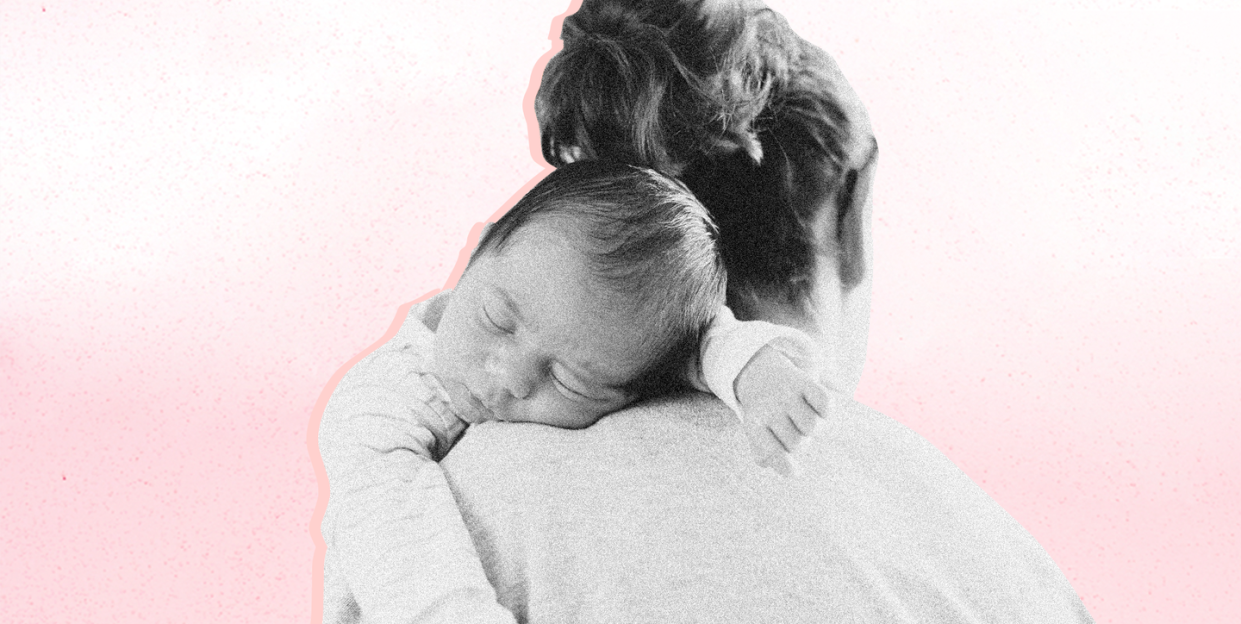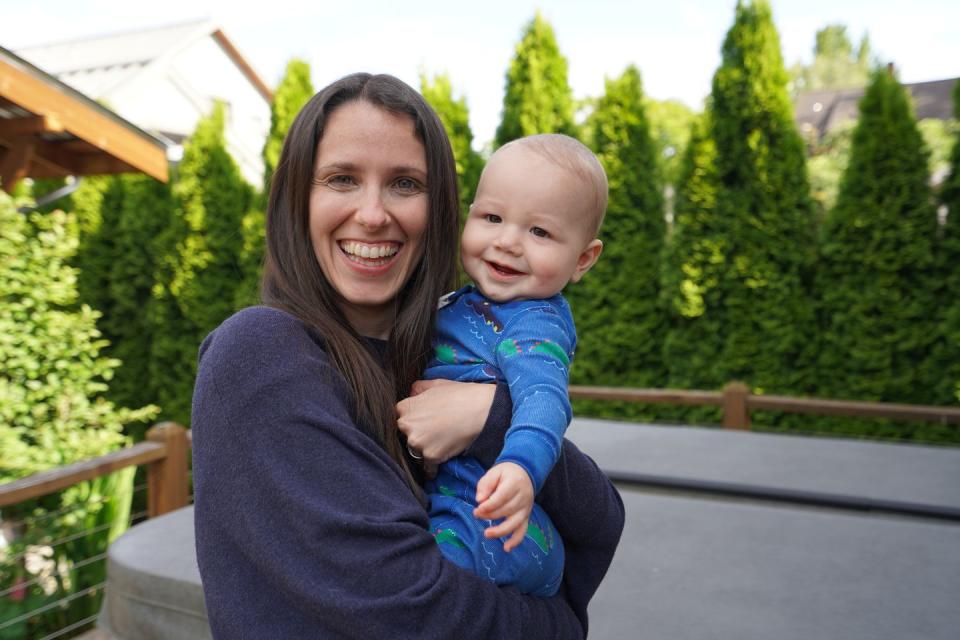Confession: It Took Me Months to Fall In Love With My Baby

I have a painful confession to make: I didn’t feel love for my son in the first few months after he was born.
My relationship with him was complicated. I had hoped to fall in love with him immediately, but knowing my tendency for selfishness and anxiety, I should have expected some kind of struggle.
Some women are born with maternal instincts. Not me. I spent my 20s running away from responsibilities and jumping from one plane to another. I thought that motherhood was an acquired taste, and that I would be able to make it work when the time came. Marriage and a mortgage were big steps for me, but motherhood was a whole other beast.

I discovered that I was pregnant a week before Christmas 2018, while my husband and I were in Italy visiting my parents. As soon as I came back to the United States, the Christmas magic was replaced by morning sickness. For me, the nausea started at the beginning of January 2019, and it stuck around for three months — morning, afternoon, evening, and night. Shortly after, strong acid reflux replaced nausea and lasted until the day I gave birth. I didn’t like being pregnant, and I was angry with my body — not with my baby — which didn’t exactly help me develop my maternal love.
As the delivery date approached, I started to feel a mixture of excitement and fear. I didn’t know what to expect, but I knew that I wanted a natural delivery. The possibility of a C-section didn’t even cross my mind. In reality, I went ten days past my due date and had to be induced; after four hours of pushing, the doctor announced that my son’s head was stuck, and they had to perform a C-section. I was silent, staring into space. My mind was empty. Tears came down my cheeks as I listened to the surgeon.
During the procedure, I was able to keep it together by focusing on my breath, but after the surgery my brain went crazy. The nurse wanted to put the baby on my chest, but I didn’t want him. I couldn’t process what had happened. I was desperate, and I had to ask for medication to calm me down.
When the OB-GYN came to visit me in the recovery room, she could see that I was devastated. “How are you?” she asked.
“I didn’t want a C-section. My body hurts. I’m hurting everywhere,” I replied.
“I know what you’re going through,” she told me, though what she said next resonated even more: “You’re mourning the delivery experience you didn’t have.”
Breastfeeding was a painful experience, too. None of my girlfriends who’d become mothers in recent years had shared any of their challenges until I asked them directly. I wish I’d known beforehand at least half of the pain I’d later go through.
Fortunately, I could count on my husband’s support while dealing with the burning pain in my body and the painful breastfeeding sessions. He had three months off and stepped up to do everything he could to help me and take care of the baby. During that time, I didn’t feel joy when I spent time with my son; my mind was too focused on my own pain. I felt no connection with him. To me, he was still like a fetus. I saw myself just as a caretaker, and I was overwhelmed by the responsibility of keeping him alive.
When my husband eventually returned to work, and I was left alone with my son for the first time, my anxiety showed up in full force. Every time he left me alone with my son, I felt my heart racing. I can’t do it, I thought. I can barely take care of myself. How am I supposed to take care of this little being?
These thoughts were paired with intrusive images of my son falling from my arms and breaking his head and persistent sadness. I decided to call my OB-GYN to explore the idea of getting help with reducing my postpartum anxiety. The problem was that the more I talked about these negative emotions, the more I identified with them. I decided that counseling wasn’t for me.
Instead of talking about my anxiety and depression, I asked my family and friends to constantly remind me of the person I was before: a joyous, positive, strong woman. This image of myself gave me strength and helped me understand that whatever was happening to me was temporary.
I started to investigate my emotions during meditation by analyzing their effects on my body. I felt pain at the pit of my stomach and pressure on my heart. The more I familiarized myself with these patterns, the more I became aware of my anxiety and when and how it showed up. With time and practice, I felt that I was able to gain more control over it.
As my anxiety decreased, it left space for something new, and a new question arose: Where was the love? Not just the love for my son, but also the love for myself.
Love was buried under the physical pain, the fear of responsibility, and the pressure to step into the new role of a happy, radiant, and self-confident mother. This is the image that I had witnessed in our society, and this is what I wanted and expected to become. When I experienced sadness and anxiety instead, I thought there was something wrong with me.
I was sabotaging myself by thinking that I wouldn’t be a good mother. I had created an imaginary world in which I was a bad person not worthy of love from my husband and son. I’d stopped loving myself. When I realized this (after many tears, night sweats, and nightmares), I felt the anxiety leaving my body.
For me, motherhood was like starting a brand new life, but I couldn’t see anything positive in it because I thought I had lost my identity in the process. In reality, I had lost my love for myself. I forgave myself for my sabotaging tendencies and for the future mistakes that I’ll make as a mother. That’s how I was born again.
I don’t regret anything in my journey to becoming a mother because motherhood is hard, and there is no right or wrong path. My son has already taught me so much, without even knowing it. He is and will always be my biggest teacher. My love for him finally started to flow freely, and it grows stronger every day.
You Might Also Like
